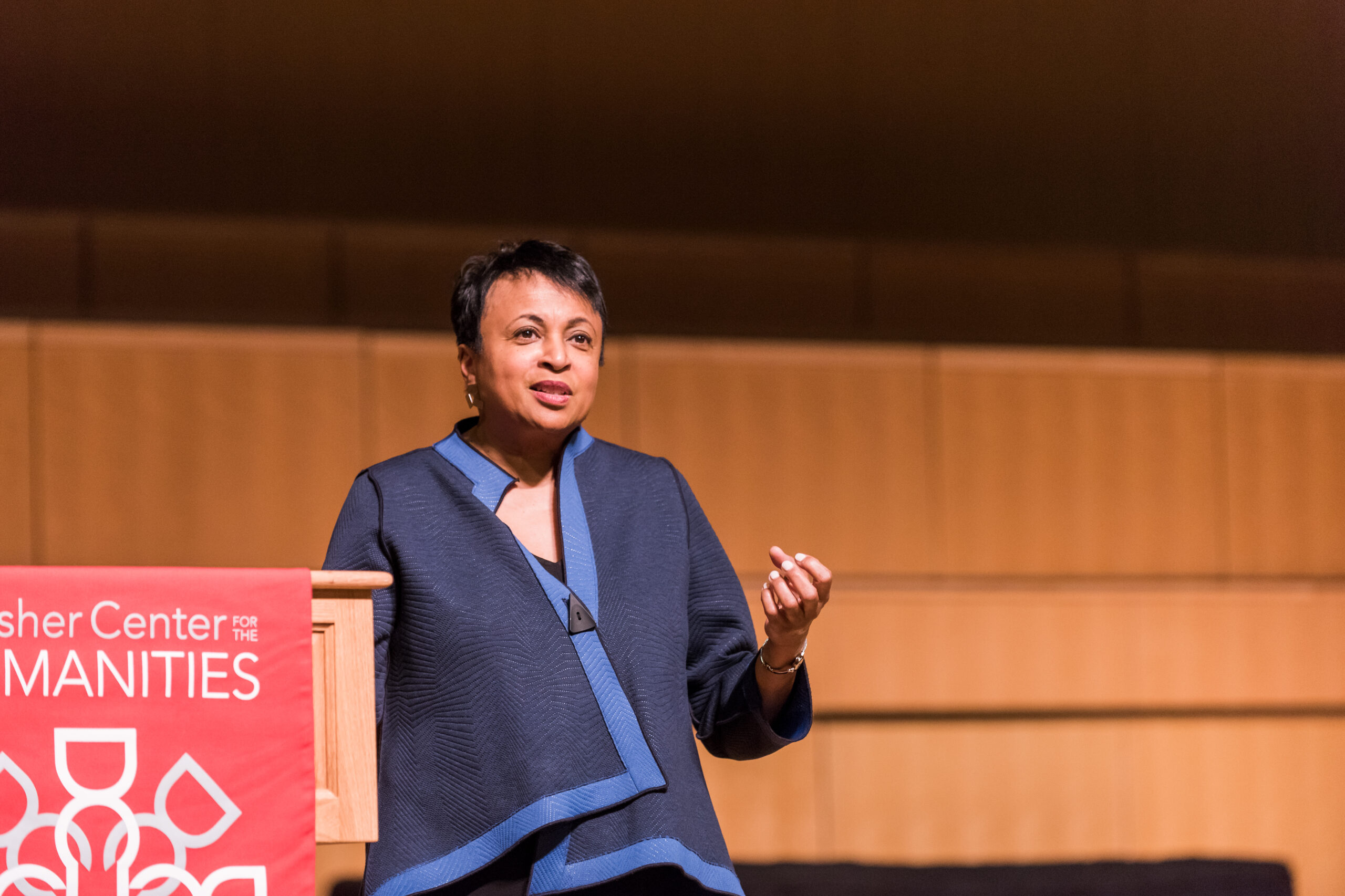The UMBC community welcomed U.S. Librarian of Congress Carla Hayden to campus on April 13, 2017 for a conversation on her new role heading the oldest federal cultural institution in the nation. Hayden focused her National Library Week talk on a major issue in the library world, and for the Library of Congress in particular: expanding digital access to the country’s unparalleled collections, “a treasure chest just waiting to be opened.”
The lecture was a homecoming for Hayden, former director of Baltimore’s Enoch Pratt Free Library, who spoke of her longtime friendship with UMBC President Freeman Hrabowski. But before Hayden took the stage, Jessica Berman, director of the Dresher Center for the Humanities, shared a powerful personal reflection on the impact of public libraries.
“I wouldn’t be where I am today without librarians,” said Berman. She described how it was a public library that opened doors previously unimaginable for her family, particularly her mother, who grew up in a low-income family in New York.
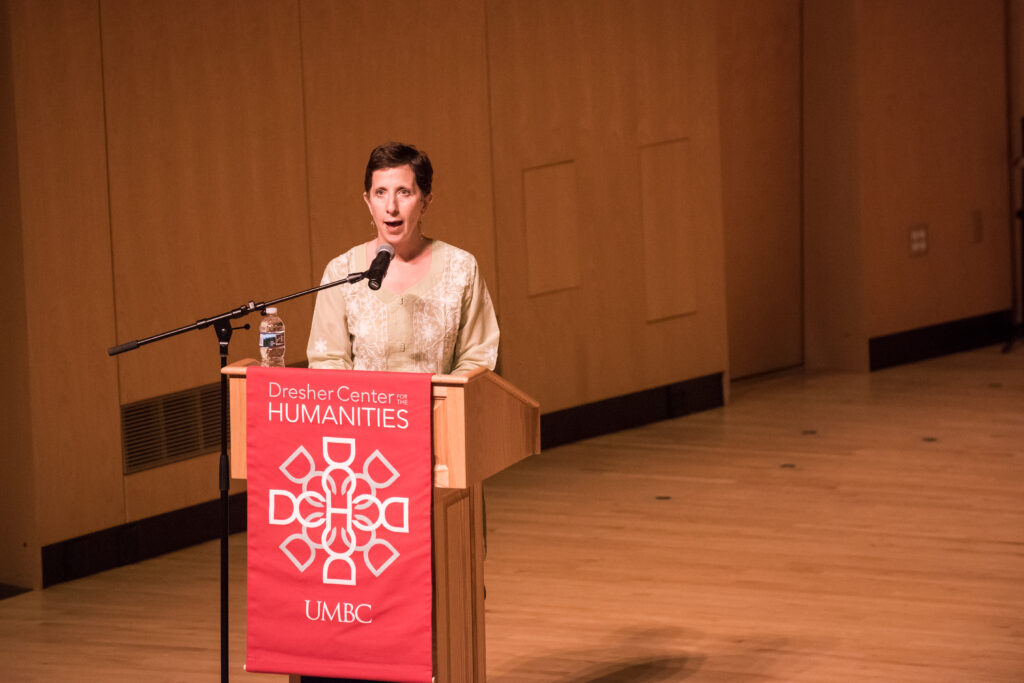
“My mother’s eyes still tear up when she describes receiving her first library card. It was a talisman,” Berman shared. Her mother went on to receive an undergraduate degree from Smith College and, years later, her doctorate in social work, the same year Berman earned her own Ph.D.
As a young academic, said Berman, “When I first moved to Washington D.C., the Library of Congress was my intellectual life.” She described the rush she felt sitting in the Jefferson Reading Room for the first time and how she still gets the same feeling when she steps into that space 25 years later.
It was with a “personal passion and gratitude for all she has done and all she represents,” that Berman welcomed Hayden to UMBC’s Linehan Concert Hall to present UMBC’s 2017 Daphne Harrison Lecture.
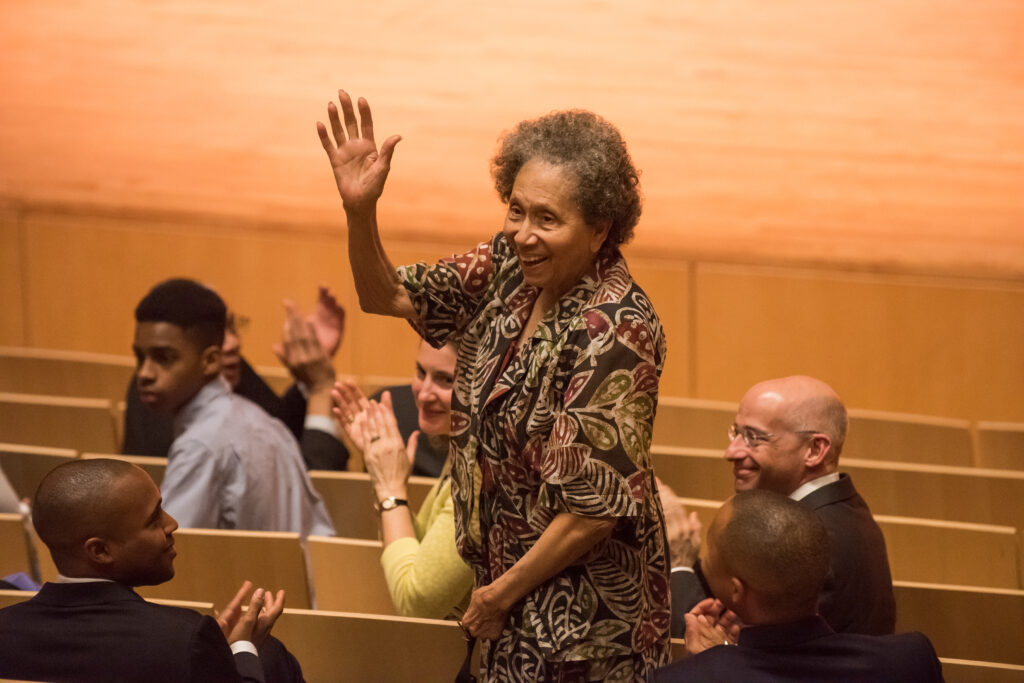
Hayden began by sharing how she made the difficult decision to leave the Pratt library to head the Library of Congress.
For years, Hayden focused her attention on cultivating Baltimore libraries as community spaces and community resources. During the 2015 unrest in Baltimore, she reflected, “the public library was the lifeline for so many people.” She had concerns about “moving from a library that was connecting to people every day” in such an essential way, to serving as the leader of a national institution — broadly impactful, but perhaps less closely connected with city residents’ everyday lives.
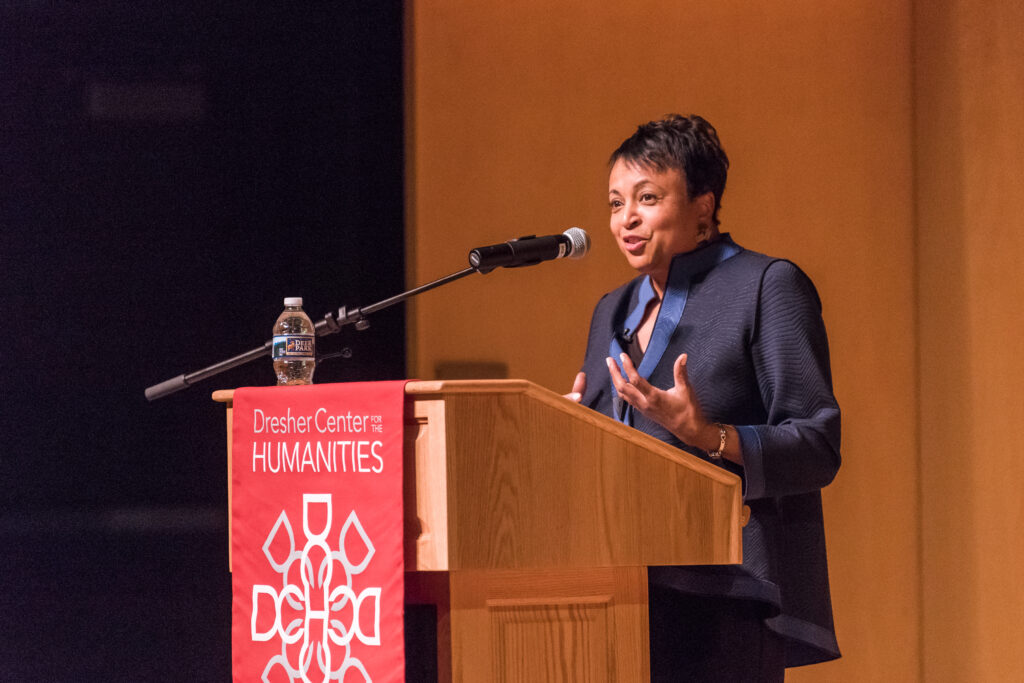
Hayden recounted meeting with then-President Barack Obama before her nomination. Together, at the Library of Congress, they viewed personal letters that Rosa Parks wrote after her arrest in Montgomery, Alabama in 1955 for refusing to give up her bus seat. Looking at the letters, Obama spoke with Hayden about the immense potential of historical records to directly inform, affirm, and inspire people across the nation. What was needed, he expressed, was someone to bring the library’s 160 million items directly to the public.
Once she formally stepped into her new role, Carla Hayden resolved to open the “treasure chest,” as she describes the Library of Congress, for all the nation to see. Through her own @LbnofCongress Twitter account, she says, “I invited everyone to discover with me” the collections’ riches. After all, Hayden noted, “This wonderful treasure chest is just a mausoleum if people can’t read and see [what’s inside].”
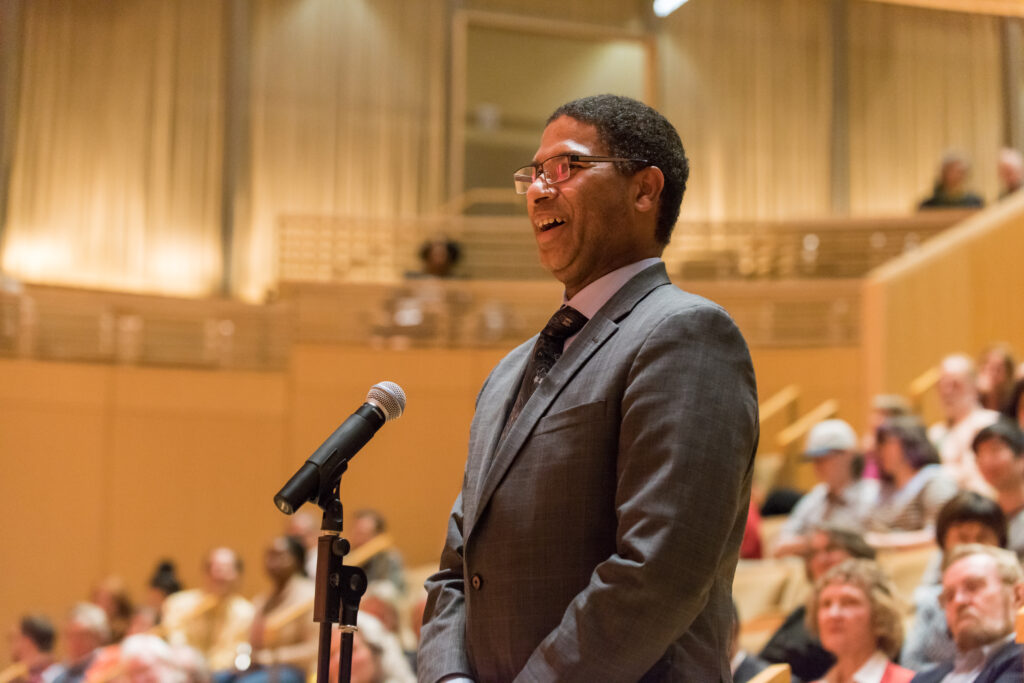
So great are the library’s treasures that Hayden still regularly comes across collections that astound her and excite colleagues who have worked at the library for decades. Many know about the draft of the Declaration of Independence in Thomas Jefferson’s handwriting and Abraham Lincoln’s draft of the Gettysburg Address. Fewer people know about the personal correspondence between Jackie Robinson and scout Branch Rickey or the letters Sigmund Freud and Albert Einstein wrote to one another.
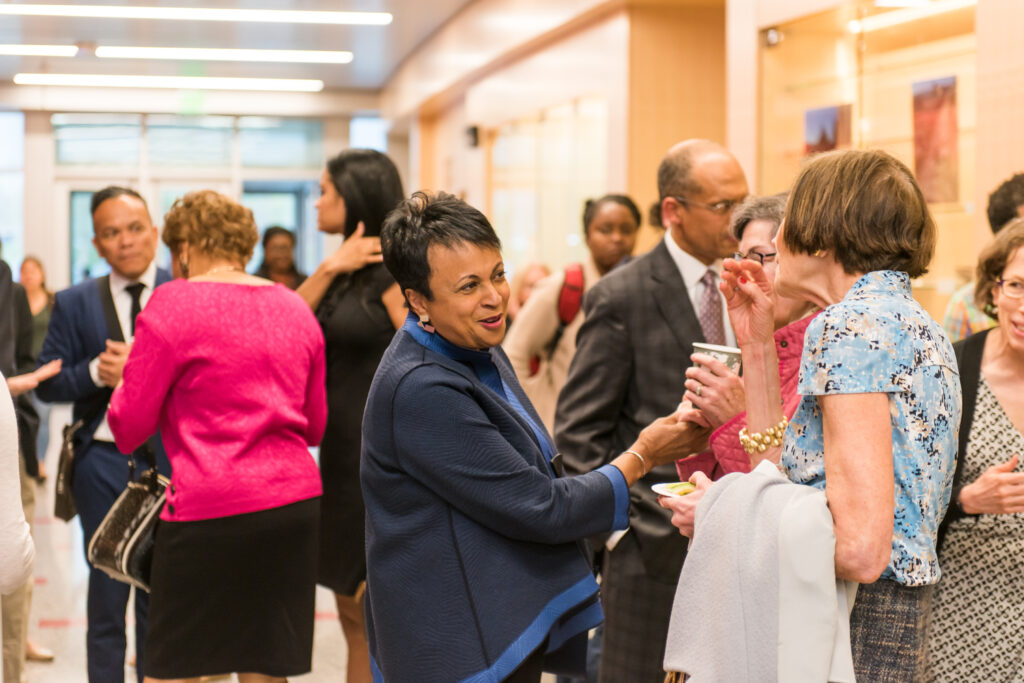
“The biggest surprise is how much is there that even people who have worked there [for years] don’t know [exists],” she says. “It’s just there…waiting to be opened,” in room after room, across hundreds of miles of shelves.
It’s these discoveries that affirm for her, every day, that digital access isn’t an add-on, it’s a core part of her mission, and that of the library itself.
“This is America’s library. This is your library,” Hayden shared. “We want to be part of people’s lives.”
Carla Hayden’s 2017 Daphne Harrison Lecture, which took place during National Library Week, was sponsored by the Dresher Center for the Humanities, Albin O. Kuhn Library and Gallery, Africana studies department, and English department.
Photos by Marlayna Demond ’11 for UMBC.
Tags: AfricanaStudies, CAHSS, DresherCenter, English, Library

